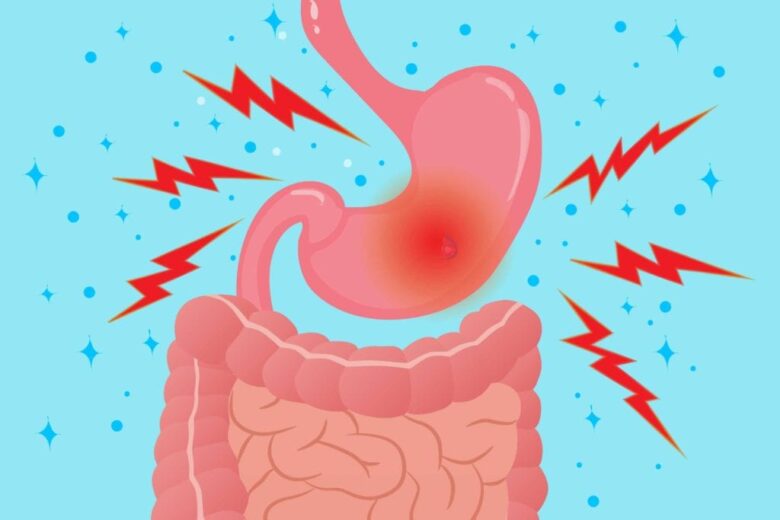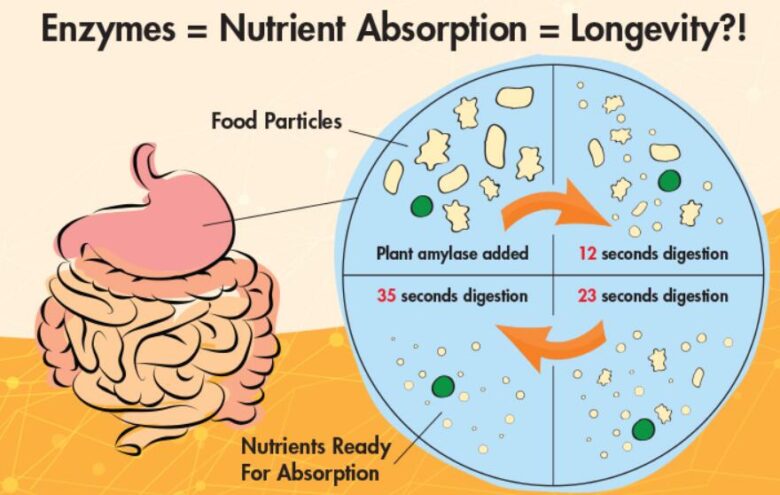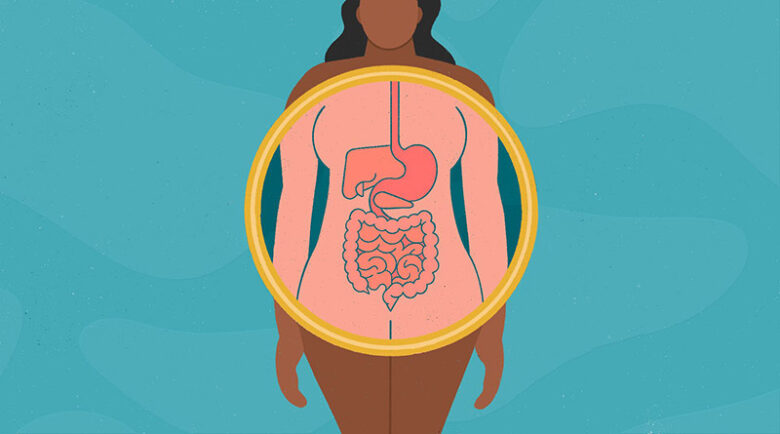Digestion is a fundamental process in our bodies, yet it often goes unnoticed until something goes wrong. Understanding your digestive tract, recognizing symptoms of digestive disorders, and knowing how digestive enzymes work can help you make the most out of your digestion. In this article, we’ll explore what the digestive tract is, common symptoms of digestive disorders, and the role of digestive enzymes.
Digestive enzymes, the unsung heroes of digestion, assist in breaking down food into smaller, absorbable molecules. These enzymes include amylase for carbohydrates, protease for proteins, and lipase for fats. Understanding their roles can help optimize digestion and alleviate digestive issues.
In the following sections, we’ll delve deeper into the digestive tract, common disorder symptoms, and the vital role of digestive enzymes in maintaining digestive health.
Contents
- What Is the Digestive Tract?
- Recognizing Symptoms of Digestive Disorders
- The Role of Digestive Enzymes
- How Do Digestive Enzymes Work?
- When Should Digestive Enzymes Be Taken?
- How Do You Know Digestive Enzymes Are Working?
- Dietary Tips for Digestive Health
- Consulting a Healthcare Professional
- Lifestyle Factors and Digestion
What Is the Digestive Tract?
The digestive tract, also known as the gastrointestinal (GI) tract, is a long, winding system starting at your mouth and ending at your anus. It plays an important role in breaking down the food you eat into smaller, absorbable nutrients, providing your body with the energy and nutrients it needs to function properly.

Source: creakyjoints.org
Recognizing Symptoms of Digestive Disorders
Digestive disorders can manifest in various ways, and the symptoms may vary from person to person. Some common signs of digestive issues include:
- Abdominal Pain: Persistent or recurring abdominal discomfort can signify digestive problems.
- Bloating: Feeling full or swollen after meals, even when eating a small amount, may indicate digestive issues.
- Gas: Excessive gas and flatulence can be a symptom of digestive disorders.
- Diarrhea or Constipation: Changes in bowel habits, such as frequent diarrhea or constipation, may signal digestive problems.
- Heartburn: Persistent heartburn or acid reflux can indicate issues with the lower esophageal sphincter.
- Unexplained Weight Loss: If you’re losing weight without trying, it’s essential to investigate potential digestive concerns.
The Role of Digestive Enzymes
Digestive enzymes are essential molecules that your body produces naturally to break down food into smaller, absorbable nutrients. These enzymes play a significant role in the digestive process by breaking down carbohydrates, proteins, and fats into simpler forms your body can absorb.
How Do Digestive Enzymes Work?
Digestive enzymes work like specialized scissors, cutting large food molecules into smaller pieces. Here’s how they function:
- Amylase: Breaks down carbohydrates into glucose.
- Protease: Breaks down proteins into amino acids.
- Lipase: Breaks down fats into fatty acids and glycerol.
These enzymes are produced in various parts of your digestive tract, including the mouth, stomach, pancreas, and small intestine.

Source: nancyguberti.com
When Should Digestive Enzymes Be Taken?
Digestive enzymes can benefit individuals with certain digestive disorders or those who experience digestive discomfort after meals. Here are some situations in which taking digestive enzymes may be helpful:
- Digestive Disorders: If you have a diagnosed digestive disorder, such as pancreatic insufficiency or lactose intolerance, your healthcare provider may recommend digestive enzyme supplements.
- Age: As we age, our natural enzyme production may decline, making supplements beneficial for some older adults.
- Food Intolerances: If you have food intolerances or sensitivities, digestive enzymes can help you break down specific food components.
- Gas and Bloating: If you often experience gas, bloating, or discomfort after eating, digestive enzymes may provide relief.
How Do You Know Digestive Enzymes Are Working?
Determining whether digestive enzymes are working may require some observation. Here’s how to assess their impact:
- Symptom Improvement: If you’ve been experiencing digestive discomfort, monitor whether your symptoms improve after taking digestive enzymes as recommended.
- Consistent Bowel Movements: If you’ve had irregular bowel movements, the regular use of digestive enzymes may lead to more consistent and normal stools.
- Reduced Gas and Bloating: If gas and bloating were your main concerns, you should notice a reduction in these symptoms.
Dietary Tips for Digestive Health
Maintaining good digestive health is not only about understanding the mechanics of digestion but also about making conscious dietary choices. Your diet plays a pivotal role in how your digestive system functions. Here are some essential dietary tips to promote digestive well-being.
- Embrace a Balanced Diet: A balanced diet is the cornerstone of digestive health. Incorporate a variety of foods from different food groups, including fruits, vegetables, lean proteins, whole grains, and healthy fats. This diversity provides your digestive system with the nutrients it needs to function optimally.
- Prioritize Fiber: Dietary fiber is a digestive superhero. It promotes regular bowel movements and helps prevent constipation. Foods rich in fiber include oats, legumes, fruits, and vegetables. Aim for at least 25 grams of fiber daily.
- Whole Grains: Opt for whole grains over refined grains. Whole grains like brown rice, quinoa, and whole wheat bread are higher in fiber and nutrients, promoting better digestion.
- Stay Hydrated: Water is crucial for digestion. It helps in the breakdown of food and the absorption of nutrients. Aim to drink plenty of water throughout the day to keep your digestive system running smoothly.

Source: publichealth.tulane.edu
Consulting a Healthcare Professional
While dietary adjustments and lifestyle changes can often improve digestive health, it’s essential to acknowledge that persistent or severe digestive issues may require professional evaluation and guidance. Consulting a healthcare professional is crucial in the following situations:
- Persistent Symptoms: If you experience persistent digestive symptoms such as chronic pain, diarrhea, or unexplained weight loss, it’s imperative to seek medical advice. These could be indicative of underlying digestive disorders.
- Proper Diagnosis: Healthcare professionals can perform diagnostic tests to identify the root cause of digestive problems. Accurate diagnosis is key to effective treatment.
- Personalized Treatment: A healthcare provider can tailor treatment recommendations to your specific condition. Whether it’s medication, dietary modifications, or lifestyle changes, their expertise ensures you receive appropriate care.
Lifestyle Factors and Digestion
Your lifestyle choices can significantly impact your digestive health. Here are some insights into how lifestyle factors influence digestion and tips for promoting a healthier gut through lifestyle adjustments.
- Stress Management: Chronic stress can lead to digestive problems such as indigestion and irritable bowel syndrome (IBS). Practicing stress management techniques like deep breathing, meditation, or yoga can help alleviate stress and improve digestion.
- Regular Exercise: Physical activity promotes healthy digestion. Aim for regular exercise to keep your digestive system functioning efficiently. Even a daily 30-minute walk can make a difference.
- Consistent Meal Times: Irregular eating patterns can disrupt your digestive rhythm. Try to establish consistent meal times to regulate digestion. Avoid heavy meals right before bedtime.

Source: narayanahealth.org
Take Away
Understanding your digestive tract and recognizing symptoms of digestive disorders is essential for maintaining optimal health. Helpful digestive enzymes play a crucial role in breaking down food, and if you experience digestive issues, they may be a valuable addition to your daily routine.
